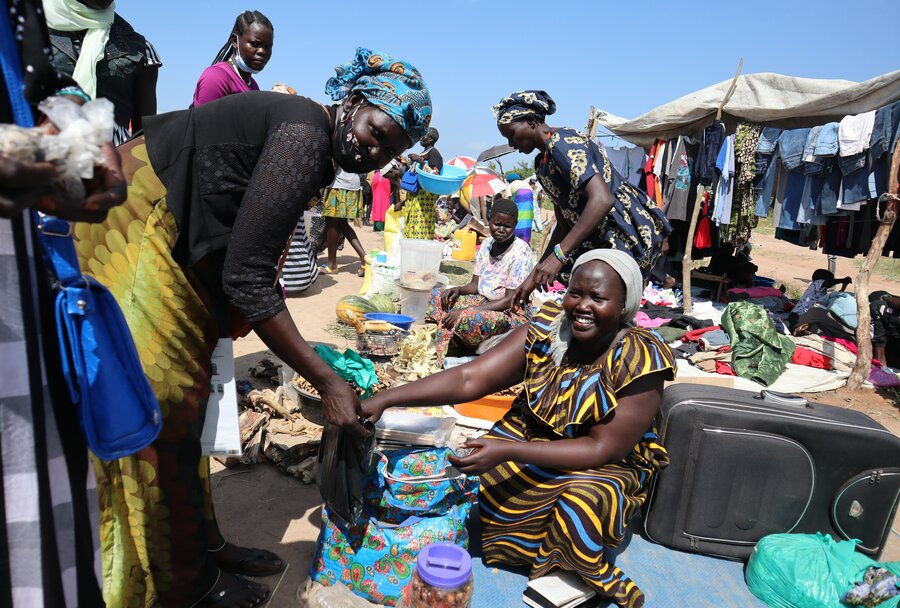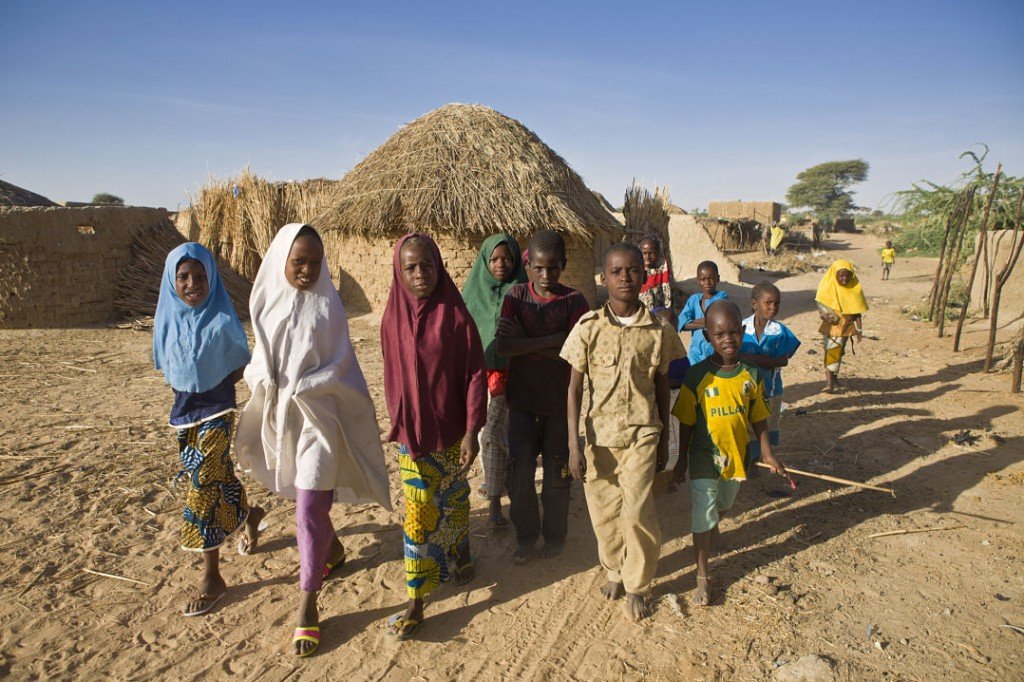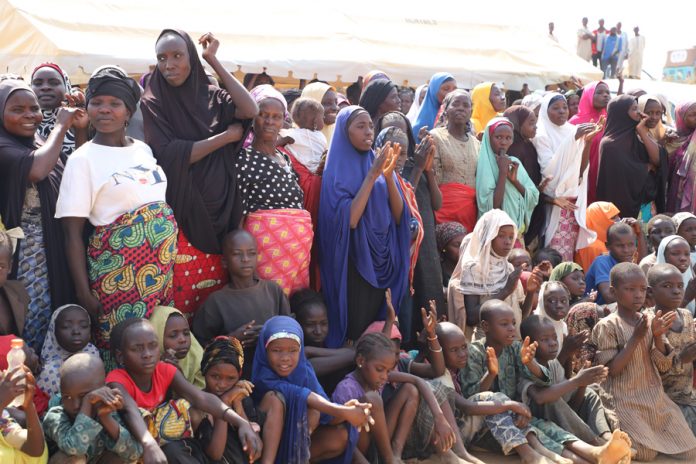Dear Beamers
Greetings! Amidst the escalating displacement crises in Nigeria, there is an urgent need for sustainable solutions that promote comprehensive self-reliance among refugees. As millions of Nigerians are forced to leave their homes due to conflict, persecution, and terrorist attacks, the task of rebuilding lives within host communities presents significant challenges. Consequently, this week’s newsletter endeavors to examine these challenges and propose informed solutions to facilitate the empowerment of refugees.
Refugees nationwide encounter substantial challenges and uncertainty as they pursue safety and a fresh start in unfamiliar territories. Nevertheless, it is imperative to acknowledge their resilience, fortitude, and potential contributions to their host communities, underscoring the necessity for refugee empowerment.
“The empowerment of refugees represents more than just a glimmer of hope; it’s a lifeline toward dignity, self-reliance, and integration into new communities. It’s about individuals, families, and communities not just surviving, but thriving and progressing economically while preserving their environment. For refugees, empowerment means resilience, economic independence, and the capacity to enrich their host societies. It’s about accessing opportunities while embracing sustainability and local integration, paving the way for a brighter future.” Says Leke Bashorun
Empowering refugees yields benefits that extend beyond individual and familial realms, encompassing enhanced social cohesion, economic advancement, and enriched cultural diversity. Committing to refugee empowerment facilitates their journey towards rebuilding lives, reclaiming dignity, and cultivating a promising future for both themselves and their host communities.
In the pursuit of refugee empowerment, education emerges as a potent instrument capable of effecting transformative change and enabling individuals to forge a brighter path forward. Particularly for economic refugees compelled to flee their homes amidst financial struggles, education assumes heightened significance, serving as a pivotal means to rebuild lives and pursue sustainable pathways to resolution.
Refugees consistently face significant barriers to accessing education upon displacement from their communities. Often thrust into new and unfamiliar settings, many lack the requisite documentation or financial resources to pursue enrollment in schools or universities. Nevertheless, it is crucial to acknowledge that education is a fundamental entitlement, irrespective of one’s economic or refugee status, underscoring the imperative for relevant authorities to address the imperative of equipping refugees with the resources essential for rebuilding their lives.

Kennedy Falade advocates for the provision of education and vocational training programs to refugees, contending that such initiatives can furnish economic refugees with the necessary skills to flourish in their new surroundings. He emphasizes:
“Education stands as a source of hope for economic refugees, offering a means to bridge the skills gap they often face in their new host countries. Forced from their homes, they may lack the qualifications needed to secure meaningful employment opportunities. Access to quality education becomes their lifeline, enabling them to overcome language barriers, enhance their employability, and strive for self-sufficiency. Through initiatives such as language programs, vocational training, and scholarships, schools and organizations provide economic refugees with the tools they need to build sustainable livelihoods. From mastering new languages to acquiring technical skills, these programs empower refugees to contribute positively to their host societies and forge a brighter future for themselves.”
In the digital era, the sector of education has undergone a transformative shift with the advent of online platforms and digital resources. Economic refugees stand to gain substantially from digital education, characterized by its flexibility and self-paced learning attributes. Online courses and educational platforms offer economic refugees diverse learning avenues, spanning language acquisition to professional skills enhancement. Moreover, digital education surmounts the hurdles posed by limited physical infrastructure and resources, enabling economic refugees to access high-quality education irrespective of their location or financial limitations.
Additionally, entrepreneurship presents a viable avenue for refugees to cultivate economic prospects for themselves and their communities. Equipping refugees with the tools to embark on entrepreneurial ventures furnishes them with the requisite expertise and capabilities to initiate and oversee their own enterprises. Through entrepreneurship training initiatives and mentorship endeavors, economic refugees can cultivate essential business acumen and gain insights into local markets, regulations, and consumer inclinations. This, in turn, facilitates the establishment of sustainable enterprises that not only sustain the individuals involved but also bolster the economic fabric of the nation.
Fostering entrepreneurship among refugees has the potential to ignite their entrepreneurial drive and foster economic self-sufficiency. Initiatives such as business training, mentorship programs, and financial backing can facilitate refugees in launching their own enterprises, thereby enriching local economies. Entrepreneurship not only ensures financial stability but also generates employment prospects for refugees and members of host communities, thereby fostering social cohesion and catalyzing economic advancement.
According to Uduak Timo, a sociology graduate and human rights enthusiast,
“Providing economic refugees with practical skills is crucial for their seamless integration into the job market and attaining sustainable economic independence. Tailored vocational training programs have demonstrated remarkable success in meeting this need. Additionally, empowering them to explore entrepreneurship can be truly life-changing.”
He added, “Entrepreneurship initiatives provide the necessary training and support to help them establish their own businesses, creating avenues for self-employment and economic growth within their communities. Through these endeavors, economic refugees acquire invaluable hands-on experience, mentorship, and income, fostering the development of tangible skills while making significant contributions to their localities.”
The imperative of refugee empowerment also hinges significantly on access to formal employment. Organizations and employers hold considerable sway in this realm by instituting inclusive hiring methodologies, providing skills development opportunities, and establishing internship initiatives. Recognizing and valuing the diverse skill sets and life experiences refugees offer can effectively bridge employment disparities, foster workplace diversity, and facilitate refugees’ integration into their new societies. To truly empower refugees, systemic reforms in policies and practices are essential. Therefore, advocacy efforts aimed at heightening awareness, dispelling stereotypes, and championing inclusive policies that uphold refugee rights and ensure equitable access to education, employment, and social services are paramount.

Refugees encounter various hurdles, including language barriers and cultural assimilation challenges. Frequently, they grapple with feelings of isolation and discrimination, rendering the adjustment to their new surroundings daunting. These experiences can detrimentally impact the mental health of economic refugees and impede their adaptation within a hostile learning environment. However, when communities unite to offer support and embrace refugees’ distinct cultural customs and traditions, remarkable transformations can ensue. Encouraging cultural exchange and integration emerges as a pivotal strategy in empowering refugees and fostering the development of resilient communities.
Initiatives such as language exchange programs, community events, and intercultural dialogues serve to foster mutual understanding, appreciation, and collaboration between refugees and host communities. Rather than pursuing a homogenized approach to language integration, embracing diversity can dismantle barriers, combat discrimination, and cultivate harmonious societies that recognize and value refugees for their distinctive contributions. Mentorship programs, cultural exchange activities, and language learning partnerships represent additional avenues for bridging the gap between refugees and host communities, facilitating economic integration and fostering social cohesion.
Nwosu Princess asserts that government-led cultural exchange programs can facilitate refugees’ smooth integration into their newfound communities. In her view,
“Cultural exchange programs serve as powerful tools for fostering mutual understanding and respect between economic refugees and their host communities. By encouraging interactions and dialogue, these initiatives dismantle stereotypes and promote social unity. Governments and local communities can greatly assist refugees in their integration process by actively supporting such programs. Moreover, implementing anti-discrimination policies and creating inclusive environments are crucial steps in addressing discrimination and social exclusion. These measures ensure that economic refugees are provided with equitable opportunities to flourish and contribute positively to their new surroundings.”
Refugees frequently bear emotional wounds from past traumas, necessitating mental health assistance to facilitate healing and rehabilitation. Past experiences can detrimentally impact the mental well-being of economic refugees and impede their adaptation within a hostile learning environment. Accessible mental health services and psychosocial support programs play a crucial role in addressing trauma, stress, and anxiety, fostering resilience, and empowering refugees to surmount their adversities. Community-based initiatives, support groups, and counseling services provide safe havens for refugees to share their narratives and bolster their mental well-being.

Effectively tackling the multifaceted challenges encountered by economic refugees mandates a comprehensive approach. This entails fostering partnerships between governments and NGOs, engaging the private sector, fostering international collaboration, adopting holistic strategies, and promoting community involvement. Additionally, such collaborative endeavors should encompass the active engagement of local communities where economic refugees are resettled. By fostering understanding, empathy, and integration, host communities can play a pivotal role in advancing the economic empowerment of refugees.
According to Tumise Irawo, CEO Saving The Young – a philanthropic movement,
“Empowering economic refugees is absolutely essential for unlocking a brighter future. It’s about arming individuals with the skills and knowledge they need to navigate the challenges of today’s world and to create opportunities not just for themselves, but for their entire communities. Investing in the lives of these underserved individuals isn’t just a moral imperative; it’s an investment in increased productivity, decreased inequality, and strengthened social cohesion.”
Empowering refugees transcends mere humanitarian obligation; it represents an investment in the potential, resilience, and collective future of individuals and communities. Consequently, it provides a tangible avenue for refugees to attain financial autonomy, reinforcing endeavors aimed at fostering resilient communities and inclusive societies. Moving forward, a steadfast commitment to broadening these initiatives and surmounting the challenges they encounter will be indispensable in unlocking the full potential of refugees globally, transforming displacement into a catalyst for growth and mutual prosperity. Together, let us forge a world where refugees are embraced, empowered, and integrated as invaluable contributors to our nation – Nigeria.




